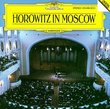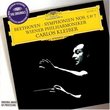| All Artists: Johannes Brahms, Claudio Abbado, Berlin Philharmonic Orchestra, Maurizio Pollini Title: Brahms: Klavierkonzert No. 1 Members Wishing: 0 Total Copies: 0 Label: Deutsche Grammophon Release Date: 2/9/1999 Genre: Classical Styles: Forms & Genres, Concertos, Instruments, Keyboard, Symphonies Number of Discs: 1 SwapaCD Credits: 1 UPC: 028944704129 |
Search - Johannes Brahms, Claudio Abbado, Berlin Philharmonic Orchestra :: Brahms: Klavierkonzert No. 1
 | Johannes Brahms, Claudio Abbado, Berlin Philharmonic Orchestra Brahms: Klavierkonzert No. 1 Genre: Classical
|
Larger Image |
CD DetailsSimilar CDs
Similarly Requested CDs
|
CD ReviewsWarm seemless playing with timbral sensitivities Rachel Abbinanti (tusai1@aol.com) | Chicago | 06/12/1999 (5 out of 5 stars) "Brahms was in a state of non-confidence when this concerto was conceived. His mentor Robert Schumann urged him to mount the problematics of large scale structural dimensions.So Brahms began wrting a work for two pianos,many of which recognize materials from this D-Minor Concerto after being cast as a first movement to a symphony. The D-Minor Concerto received its premiere in Hanover on January 22,1859 with Brahms himself as soloist. It was not warmly received and to add further animosity to the young composer's depressed state, it fell on bad ears five days later in Leipzig. With Pollini here you have a sculptor in sound and Abbado is a close accomplice. The "first movement" the overwhelming moments of the trills,Pollini elicits a blinding brightness that you sense Abbado must create a veil behind this when the winds mimick the piano. Pollini makes excitement,he ignites the orchestra to Brahms's demands. The "first movement" is a virtual self-contained piece of symphonic proportions itself. 21 minutes of violence mixed with reflections on the state of the day gazing out the window. What you get with this combination Pollini,Abbado and Berlin is a seamless constitution of warm sound,except where Pollini plunges with his bright ignitions. The"Adagio" as well with Abbado who brings an intellectualized approach to anything he touches as well as drama, envisions the sonic timbres,like here with the opening bassoons who are like balanced mists of sound against the high violins. The ending "Rondo" is also memorable, with again this forcefullness at play,with an assertive main idea,that gets tossed into the proceedings. With this playing I don't know if I prefer this to Brahms's "Piano Concerto #2"." Great Brahms...recording disappointing Greg Hales | Vacaville, Ca USA | 04/01/2000 (4 out of 5 stars) "I would agree with most everything the reviewer from Chicago said. Abbado and the BPO are on great form and Pollin sounds wondeful. I have one major beef and that is the recording. I can not understand why DG balanced the piano so far forward in the sound picture. It does not sounds natural and masks some of the orchestral detail. When you have such playing as the BPO gives you and it gets lost there is something wrong. Also the orchestra is not mere back ground. Brahms wrote such detail to be heard and some of the details in this recording are not heard.My giving it 4 out of 5 stars is based on the recording not the performance of Pollini/BPO/Abbado. I almost would go so far as to say DG should remix it and give us something like we would hear in the concert and that those people did hear at the performances at which this recording was made." Pollini dominates the field, again Santa Fe Listener | Santa Fe, NM USA | 09/24/2005 (5 out of 5 stars) "It is hard to udnerstand how Pollini can outshine every competitor of his generation in almost everything he plays, with the exception of Mozart and perhaps the Beethoven concertos. In both Brahms concertos he is towering, masterful, a titan of heroic tehcnique but without sentimentality or fussiness. I almost never play the ponderous First Concerto, except to hear him march through it with such marvelous command. Abbado offers orchestral support in the same large-scale mode."
|

 Track Listings (3) - Disc #1
Track Listings (3) - Disc #1













